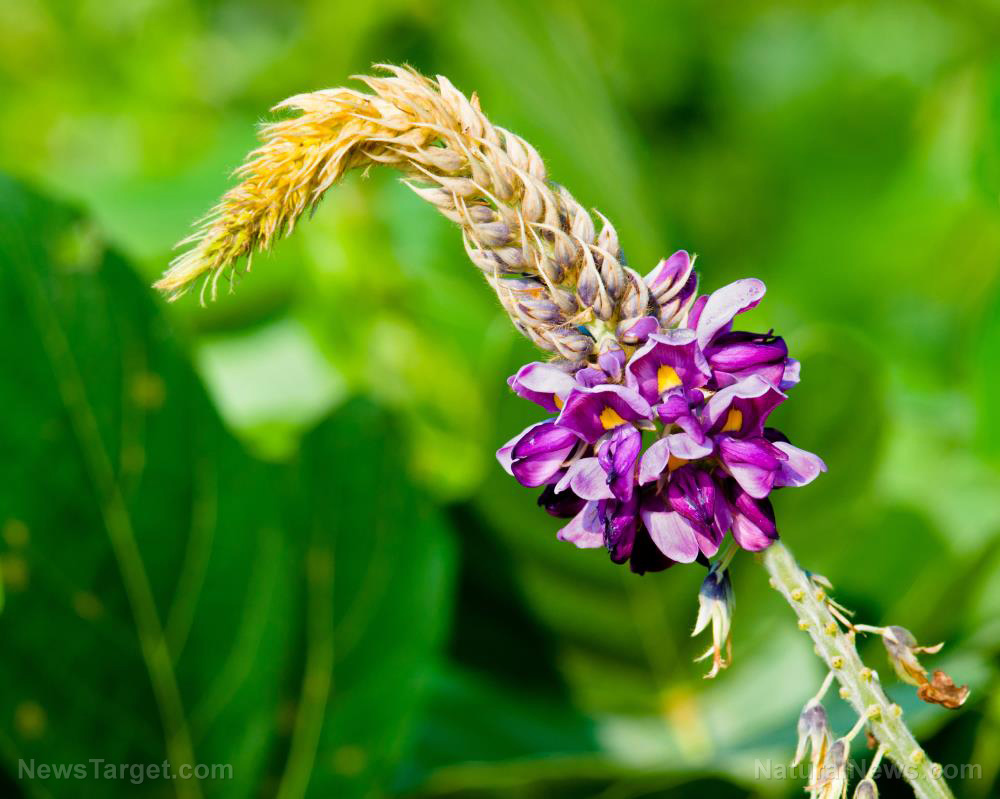How do you use kudzu in a survival situation?
11/21/2019 / By Melissa Smith

Kudzu, also known as Japanese arrowroot, is a legume that produces hearty vines and biomass. This plant was exported from Japan in 1876 and was considered an ornamental plant, but was later heavily planted to help stop soil erosion. Kudzu is also a great survival plant. (h/t to Survivopedia.com)
Biofuel
Kudzu produces more fuel per acre than corn, which tends to take up far more nutrients than beans and other legumes in the soil. Kudzu can be used as a source of fuel in three ways. The simplest and least efficient way is to let it dry out and then burn it within a few days to one week of cutting it from the roots. Kudzu is also an ideal plant to grow if you are considering setting up a natural gas incubator for your home or homestead as this plant can be used to produce natural gas. Lastly, you can also use kudzu to make ethanol. From this plant, you can produce high-proof alcohol similar to moonshine.
Making rope, baskets, and clothing
Kudzu can be used to make stiff and flexible textiles, such as rope, baskets, and clothing. To make a rope, take some kudzu vine, fold it in half, and use the spindle to twist the vines together. You can use either the inner or outer part of the vine, depending on its age. Most people use the climbing vines, but the ground-level ones may also work.
To make baskets from kudzu, use the vines that are still green, or wait until they are dry in the fall. If you will use green kudzu vines, dry it out more slowly and increase or reduce moisture in different parts of the basket to minimize warpage. You can also make a soft, silky, durable fabric using kudzu fibers.

Fertilizer
You can use kudzu as a fertilizer, but only in an area with soil that needs a bit more nitrogen. Large amounts of nitrogen can be too much for some plants. You can also use it to make compost. Just make sure that the material is completely decayed before adding it to the garden because it can quickly regenerate itself and invade your growing area.
Getting rid of lead from soil
Lead in soil continues to increase because of the extensive use of coal and other lead-producing materials. Kudzu is one of the few plants that can take up lead and store it in its roots and shoots, making it an ideal plant to grow in a field that is contaminated with lead. However, if you plant kudzu for the purpose of absorbing lead from the soil, do not use these plants as compost or as food. Find a way to discard them that will not release the lead back into the environment.
Food
Kudzu is considered a survival food. All parts of kudzu – the leaves, vine tips, flowers, and roots – are edible, except for the vines. The leaves can be eaten raw, chopped up and baked in quiches, used like spinach, cooked like collards, or deep-fried. Young kudzu shoots taste like snow peas. The purple blossoms of kudzu make delicious candy, jelly, syrup, and even wine. Its large potato-like roots, which are rich in fiber, iron, and protein, can be dried and ground into a powder to be used as a coating for foods before frying or to thicken sauces.
Medicine
Kudzu is used in traditional Chinese medicine to treat alcoholism and to reduce symptoms of hangover, such as headache, dizziness, upset stomach, and vomiting. It is also used to treat cardiovascular problems, such as chest pain, high blood pressure, heart failure, irregular heartbeat; upper respiratory problems, such as the common cold, flu, hay fever, sinus infections; and skin problems, like skin rash, psoriasis, and itchiness. (Related: Natural treatments that can ease symptoms of alcohol and drug abuse and withdrawal.)
Learn more survival uses for kudzu and other wild edibles at Herbs.news.
Sources include:
Submit a correction >>
Tagged Under:
alcoholism, BioFuel, bug out, green living, hangover, herbal medicine, Herbs, homesteading, how-to, Japanese arrowroot, Kudzu, Lead contamination, off grid, Plants, preparedness, prepping, remedies, survival, sustainable living, wild edibles
This article may contain statements that reflect the opinion of the author





















